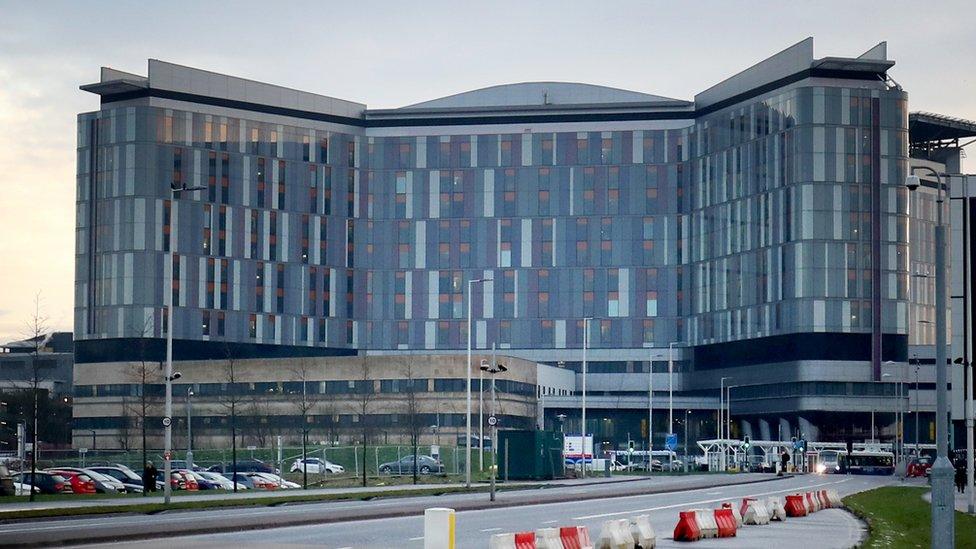Hospital building 'almost killed our son'
- Published
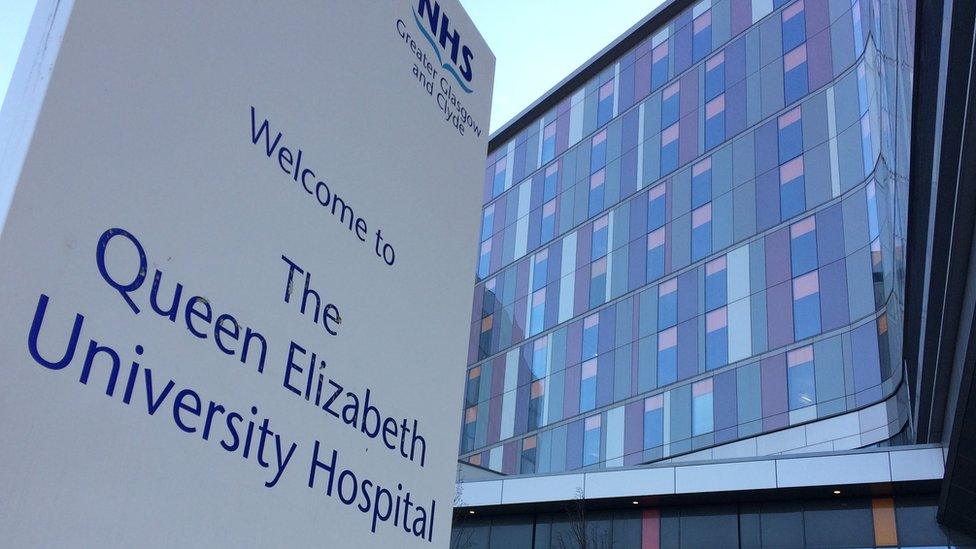
A father has told how he was left "shell shocked" after he almost lost his son to hospital-acquired infection.
Cameron Gough's 10-year-old son became seriously ill after surgery to remove a kidney as part of cancer treatment.
He told the Scottish Hospitals Inquiry he did not expect to be put in a position where "a building almost killed our son".
Mr Gough was speaking as the safety probe began hearing evidence about problems at two flagship hospitals.
The public inquiry will examine the design, construction and, where necessary, the maintenance of the Queen Elizabeth University Hospital campus in Glasgow and the Royal Hospital for Children and Young People in Edinburgh.
Mr Gough told how his son was diagnosed with cancer after he became unwell in July 2018 when he was aged seven, and was found to have a kidney tumour.
He was treated in the Schiehallion unit, the children's cancer unit at the QEUH, where Mr Gough praised the doctors and nurses as "incredible" and said it was the "gold standard" of care.
However, the inquiry heard that in August of that year concerns were raised about the safety of the water in wards 2A and 2B of the cancer unit, and filters were fitted to taps.
The father said parents were told not to drink the tap water or use it for brushing teeth or washing up, which he said caused him "a wee bit of concern".
He also recalled how at one point a shower room flooded, spreading dirty water across the floor, and he was told it was not an isolated incident.
In September 2018 his son had an operation at the hospital to remove the kidney but his condition soon deteriorated.
Mr Gough told the inquiry: "When you see the fear in doctors' eyes, the fear of the intelligent people, not the trainees but the really intelligent people, that's scary, that was difficult to cope with and we kind of steeled ourselves for dealing with cancer and the implications of cancer, what we didn't expect was to be put in a position where a building almost killed our son.
"And that's really to put it brutally, a hospital-acquired infection was the point we came closest to losing our son."
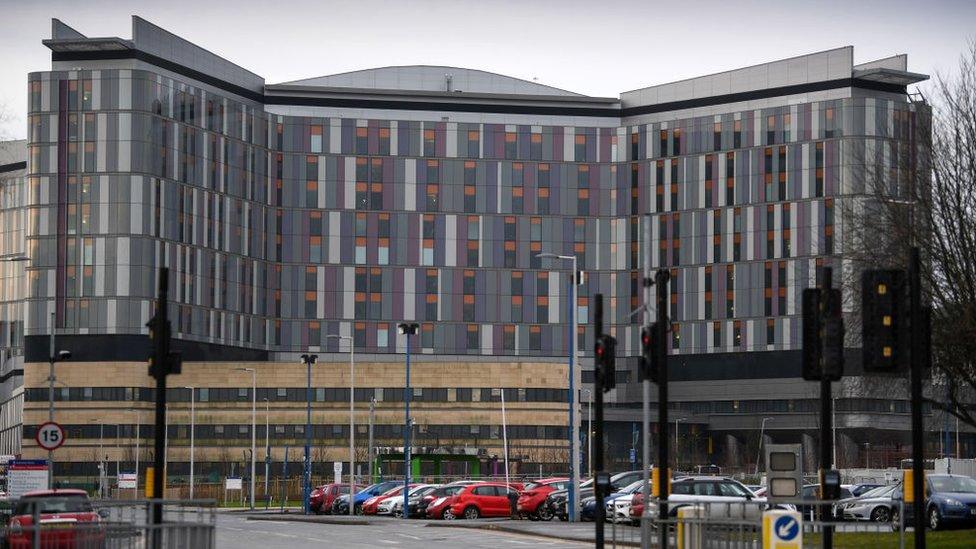
The Queen Elizabeth University Hospital in Glasgow opened in 2015
Mr Gough said that he was left "shell shocked" by the experience and said "it shot my confidence in the hospital an awful lot".
He told how he began cleaning rooms himself because he was no longer confident about cleanliness.
The inquiry earlier heard how other parents whose children were treated at the QEUH had lost faith in it as a safe place for them to be cared for.
Steve Love QC is representing 54 parents or family members of patients who were, or still are, being treated on the children's cancer ward and neonatal unit at QEUH.
'Making their already sick children more ill'
In his opening statement, he said: "The children of those we represent were admitted to hospital for treatment for serious illnesses such as conditions like leukaemia and other cancers as well as other serious medical issues and they reasonably expected that the best possible medical care and treatment would be provided for their children in a suitably safe and clean hospital environment.
"Your Lordship will be told that what they in fact faced was serious infections, life threatening additional illnesses and a catalogue of other problems as a result of the hospital environment, the hospital water supply and the conduct of some of the medical staff there."
He said that "significant numbers" suffered infection from 2017 onwards and that parents "could not believe that the hospital environment was as far as they were concerned making their already sick children more ill".
Mr Love said: "Many of them have lost faith in the hospital as a safe place for their children to be treated."
He added: "They put all of their trust and faith in the NHS, they trusted the doctors and the nurses to whom they turned, they trusted their expertise, they trusted their honesty, they trusted that their loved ones would receive the best care available in a safe environment. They were let down."
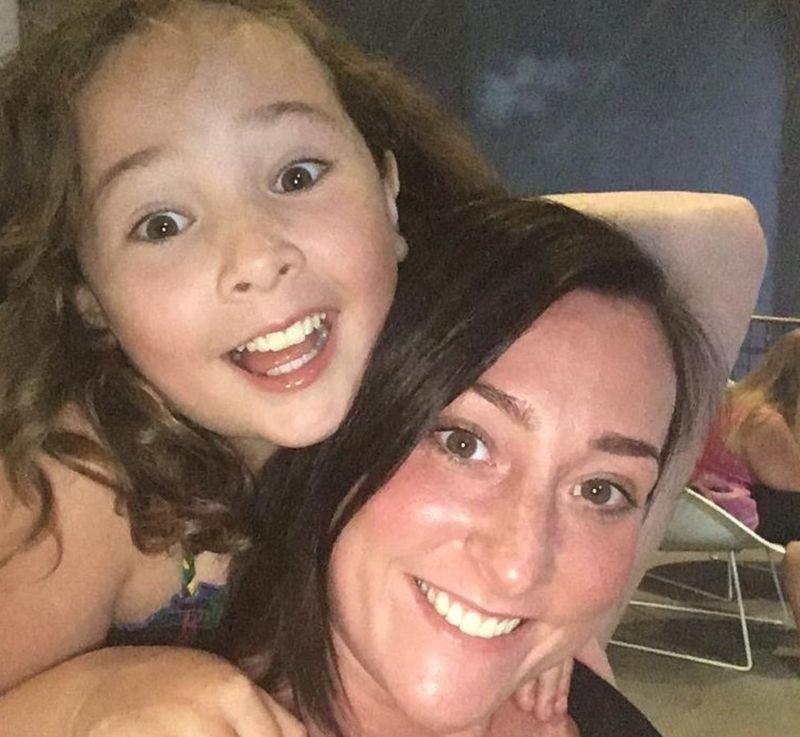
Milly Main died in August 2017 after treatment on the QEUH campus
The Scottish Hospitals Inquiry was ordered after patients at the QEUH campus died from types of infection that have been linked to pigeon droppings and contaminated water supplies.
An earlier review, external found the hospital's environment was at least partly to blame for the deaths of two children.
They included Milly Main, 10, who died after becoming infected with a rare bacteria while being treated at the Royal Hospital for Children on the £850m QEUH campus.
It also found that 76 cases of a rare bacteria in child patients were "possibly" linked to the hospital environment and 33 "probably" were.
Kimberly Darroch, the mother of Milly Main, has led calls for further investigation into issues at the hospital.
In his opening statement, Peter Gray QC, representing NHS Greater Glasgow and Clyde, said it welcomed the inquiry and was determined to ensure that the issues that needed to be addressed in both hospitals did not arise in other future NHS infrastructure projects.
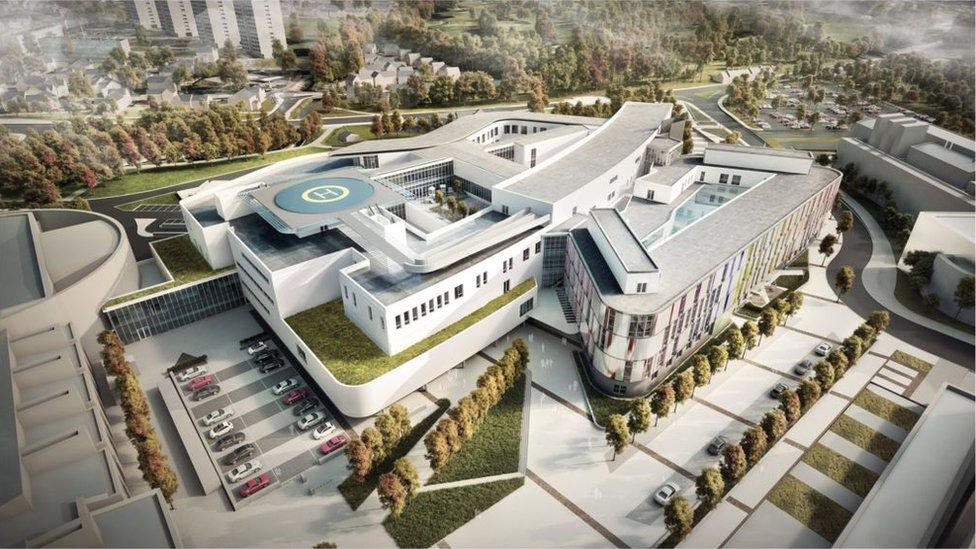
The opening of the sick kids' hospital in Edinburgh was delayed
The inquiry will also consider the problems that led to a delay in the opening of the £150m Royal Hospital for Children and Young People and Department of Clinical Neurosciences in Edinburgh.
The Scottish government stepped in to prevent it opening just a day before it was due to accept patients in July 2019 after it was found to have the wrong specification for airflow in critical care rooms.
A report commissioned by NHS Lothian last year blamed a mistake in a spreadsheet for setting in motion a series of events which led to the delay. It finally opened in March this year.
The hearings are taking place at offices near Edinburgh's St Andrew's Square and are being streamed online.
They will run for three weeks before a two-week break. They will resume on October 25 for a further two weeks.
- Published3 May 2021
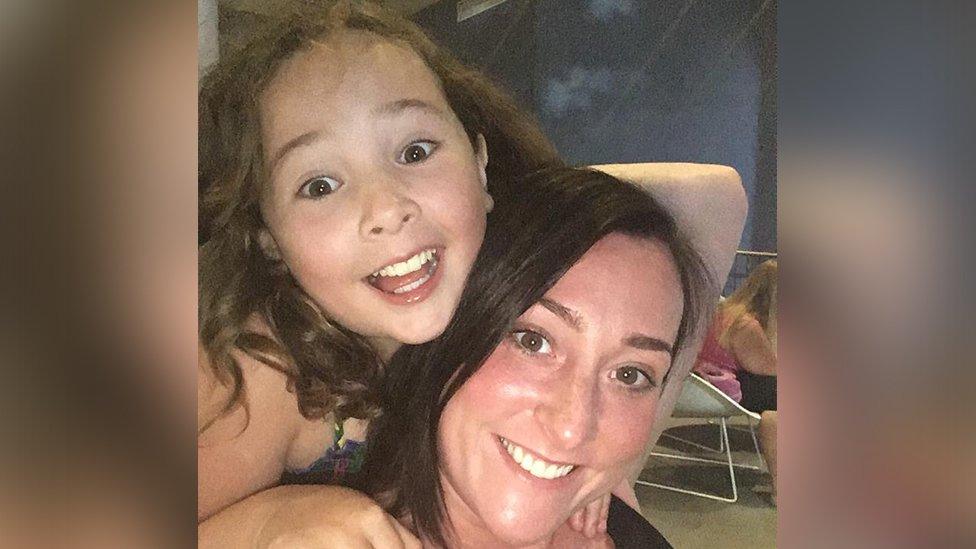
- Published22 March 2021

- Published15 June 2020

- Published26 August 2020

- Published9 May 2022
